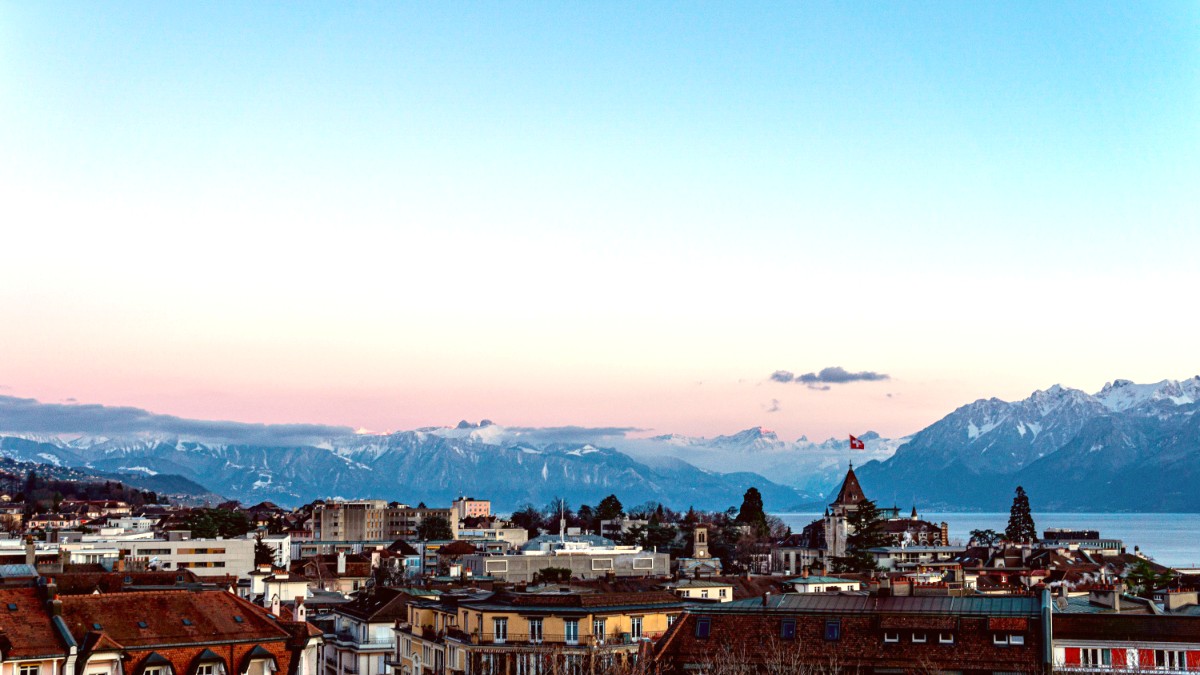
Lake Geneva Region, Switzerland
Spring (April-May): Temperatures are mild, typically ranging from 8-18°C (46-64°F). Sunshine steadily increases, making it a pleasant time for walking and outdoor dining. Occasional rain showers are possible, so a light Waterproof jacket is helpful. The Lake Geneva region shows signs of new life, with blossoms appearing and vineyards budding.
Summer (June-August): These are the warmest months, with averages between 18-28°C (64-82°F). Expect long daylight hours and abundant sunshine. Lake temperatures become warm enough for swimming and water activities. Summer can bring intense thunderstorms, often in the late afternoon or evening, which quickly pass.
Precipitation distributes fairly evenly throughout the year. Summer sees slightly more rain due to thunderstorms, while winters have less rainfall but more potential for snow. Humidity levels stay generally moderate, slightly higher during summer months.
Lausanne does not experience extreme weather conditions like monsoons or hurricanes. However, summer thunderstorms can be intense, bringing heavy rain and strong winds for short periods. Winters bring cold snaps.
June - August, December
Good weather for lake activities, hiking, outdoor enjoyment. All attractions operate full hours.
Largest crowds, higher prices for hotels and flights. Popular sites busy.
April - May, September - October
Pleasant weather, fewer crowds for relaxed experience. Moderate prices. Blossoms in spring, foliage in autumn.
Some mountain transport or smaller attractions might have reduced hours.
November, January - March
Lowest prices for accommodation and flights. Fewest tourists. Opportunities for winter sports in nearby resorts.
Cold weather, shorter daylight hours. Some activities limited. Attractions may have reduced hours.
When visiting in the shoulder or low seasons, confirm the operating hours of specific attractions or mountain transport, as some may have reduced schedules.
June to August for warmest lake temperatures.
May to October; shoulder seasons for fewer crowds.
May to October, September for grape harvest.
April to October weather for walking and sightseeing.
December to March for winter sports.
Switzerland is part of the Schengen Area, which makes travel simpler for many nationalities.
Citizens of countries without a visa-free agreement with the Schengen Area (e.g., India, China, many African nations) need a Schengen Visa (Type C - Short Stay).
Gather the documents needed for entry.
Switzerland has no general entry fees for tourists.
Immigration procedures are standard upon arrival. You present your passport and any required visa to immigration officers. They may ask about the purpose and length of your visit. The process is usually efficient.
No special permits for standard tourist activities.
No specific health entry requirements. No vaccination certificates needed.
Mandatory for Schengen visa applicants, highly Recommended for all.
Carry copies of your passport, visa, and insurance documents separately.
Stay informed about ETIAS implementation date (late 2024/early 2025).
Switzerland has a reputation for being an expensive country, and Lausanne is no exception. Careful budgeting helps you manage your expenses and enjoy your trip without financial stress.
These are average daily estimates, subject to your travel style and preferences.
Switzerland is a very low crime rate, and Lausanne is a safe city for tourists.
Sunburn/Heatstroke: Summers are warm, sun exposure high. Use Sunscreen and hydrate. Altitude Sickness: Lausanne moderate elevation, but mountain trips need awareness. Ticks: Check after hiking in wooded areas.
Switzerland boasts an excellent healthcare system with modern hospitals and well-stocked pharmacies.